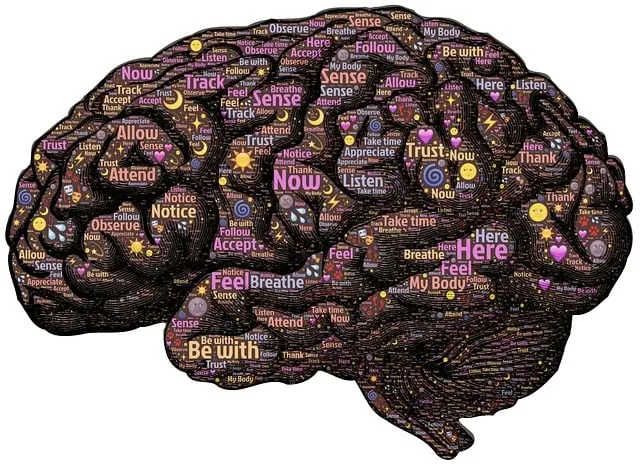Kaiser Permanente's mental health facility in Castle Rock prioritizes crisis intervention with advanced techniques for acute emotional distress management. Trained professionals identify triggers early, employ strategies like cognitive behavioral therapy and mindfulness, and provide personalized care through active listening and empathy to empower individuals. Post-crisis, the Community Outreach Program offers sustained support with check-ins, group therapy, and a podcast series for long-term recovery and resilience.
At Kaiser Permanente’s mental health facility in Castle Rock, crisis intervention strategies are pivotal in providing immediate support to individuals facing intense emotional distress. This article guides through essential aspects of crisis management, from recognizing signs and triggers to implementing effective communication techniques. We explore strategies for immediate safety, post-crisis care, and follow-up procedures, offering valuable insights tailored to Kaiser Permanente’s approach at Castle Rock.
- Understanding Crisis Intervention at Kaiser Permanente Castle Rock
- Identifying Signs and Triggers for Mental Health Crises
- Strategies for Immediate Support and Safety
- Effective Communication Techniques During a Crisis
- Post-Crisis Care and Follow-up Procedures
Understanding Crisis Intervention at Kaiser Permanente Castle Rock

At Kaiser Permanente Castle Rock, crisis intervention is a cornerstone of their mental health services, designed to provide immediate and effective support to individuals facing acute emotional distress or psychological crises. This facility, known for its comprehensive approach to mental well-being, prioritizes creating a safe and supportive environment where patients can receive the care they need without delay.
The team at Kaiser Permanente Castle Rock is equipped with trained professionals who possess advanced skills in crisis intervention techniques, including emotional regulation strategies, cognitive behavioral therapies, and mindfulness practices. They focus on individual needs, tailoring interventions to address specific challenges related to mood management, stress management, and enhancing emotional intelligence. This personalized approach ensures that each patient receives the highest level of care during their time at the facility.
Identifying Signs and Triggers for Mental Health Crises

Early identification is key to effective crisis intervention. At a Kaiser Permanente mental health facility like Castle Rock, professionals are trained to recognize subtle signs and triggers that may indicate an impending mental health crisis. These can range from dramatic changes in mood or behavior to more subtle cues such as increased social withdrawal or shifts in appetite and sleep patterns. By being attuned to these signals, providers can proactively engage individuals before symptoms escalate.
Various factors contribute to mental health crises, including unresolved conflicts, heightened stress levels, and the impact of trauma. Conflict resolution techniques play a significant role in mitigating these triggers. Additionally, Mental Illness Stigma Reduction Efforts focus on fostering understanding and empathy within communities, encouraging early help-seeking behaviors. Effective stress management strategies are also integral to crisis prevention, teaching individuals coping mechanisms to navigate life’s challenges without resorting to harmful behaviors or thoughts.
Strategies for Immediate Support and Safety

When faced with a crisis, immediate support and safety measures are paramount. At a Kaiser Permanente mental health facility like Castle Rock, professionals are trained to provide swift interventions that prioritize the well-being of individuals in distress. This includes creating a safe space, both physically and emotionally, where individuals can begin to process their emotions and take stock of the situation.
Strategic approaches such as active listening, empathy, and validation form the backbone of these initial responses. By employing positive thinking and mind over matter principles, mental health educators design programs that empower individuals to manage crises effectively. Mental health education programs at facilities like Castle Rock aim to equip folks with tools to navigate challenging situations, fostering resilience and promoting a sense of control in the face of adversity.
Effective Communication Techniques During a Crisis

During a crisis at a Kaiser Permanente mental health facility in Castle Rock, effective communication is paramount. Trained professionals must employ active listening, maintaining eye contact and using neutral, non-judgmental language to understand clients’ needs and concerns. This approach fosters trust and ensures individuals feel heard, which can significantly impact their emotional state during turbulent times.
Social Skills Training, a component often integrated into Burnout Prevention Strategies for Healthcare Providers, plays a crucial role in enhancing these communication techniques. By practicing empathetic dialogue and adaptive messaging, mental health facilities like the Kaiser Permanente Castle Rock location can provide more personalized care. Additionally, the Mental Wellness Podcast Series Production offers valuable insights into effective crisis intervention methods, further equipping professionals to handle such situations with poise and professionalism.
Post-Crisis Care and Follow-up Procedures

After an initial crisis intervention at a Kaiser Permanente mental health facility in Castle Rock, providing sustained care and support is paramount for individuals’ long-term recovery. The period immediately following a crisis can be volatile, with emotions high and challenges multifaceted. Therefore, establishing a robust post-crisis care framework is essential to ensure individuals receive the necessary support to rebuild their lives. This typically involves a multi-faceted approach tailored to each individual’s unique needs.
The Community Outreach Program Implementation at Kaiser Permanente Castle Rock integrates various compassion cultivation practices designed to foster resilience and promote mental wellness. This may include regular check-ins, group therapy sessions, and the Mental Wellness Podcast Series Production to provide accessible resources and support networks. These initiatives aim to empower individuals to manage future crises more effectively while nurturing their overall mental health. Such follow-up procedures are crucial in preventing recurring incidents and facilitating a smoother transition back into daily life.
Crisis intervention at Kaiser Permanente’s mental health facility in Castle Rock is a multifaceted approach that combines understanding, immediate support, effective communication, and post-crisis care. By recognizing signs and triggers, utilizing strategies for safety, and adhering to structured follow-up procedures, the team at Kaiser Permanente Castle Rock ensures a comprehensive response to mental health crises. This guidance not only empowers staff but also provides a supportive network for individuals facing such challenges, ultimately enhancing the well-being of the community.






